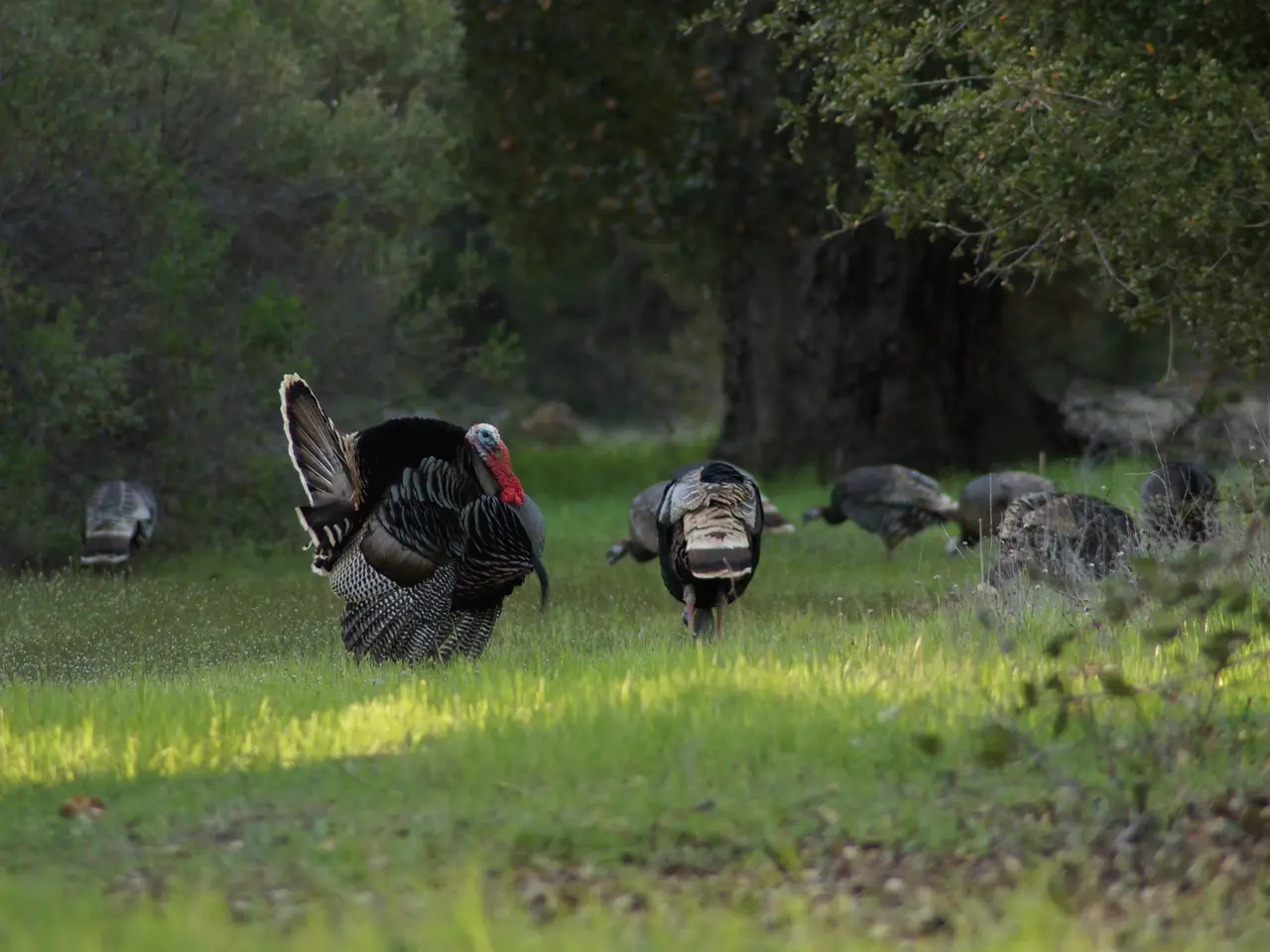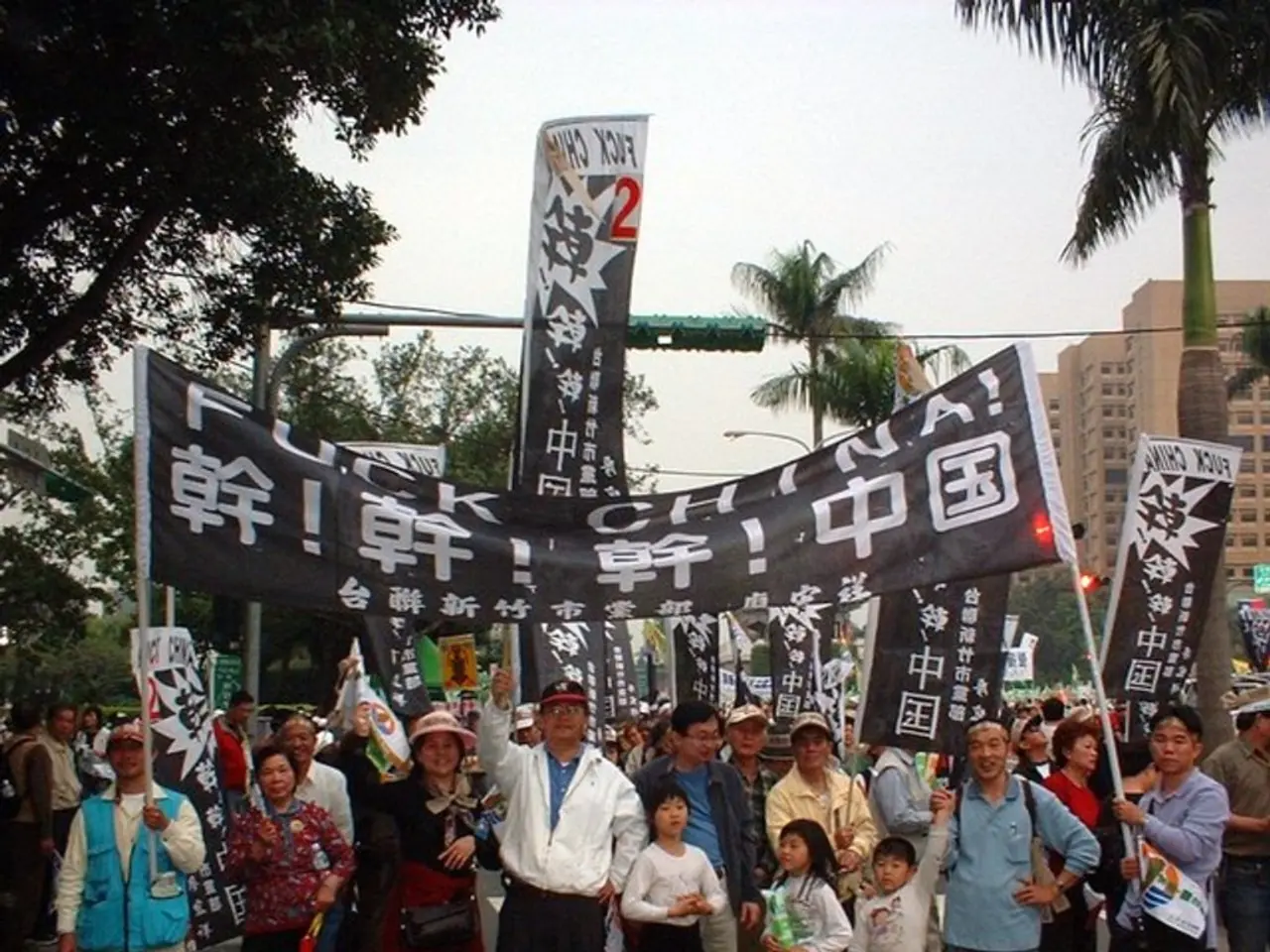Struggling to find suitable replacements for expelled migrant workers, Trump concedes, noting their work is inherently performed by them
The July employment report, published recently, has shown a net job creation of only 73,000 jobs, a figure that has been heavily criticized by President Trump. However, the report also highlights a more significant issue: a drop of 1.7 million foreign jobs between March and last month, particularly in sectors like agriculture[1].
This decline in the labor force, largely due to Trump's immigration policies, has caused concern within the agricultural community. The President's crackdown on undocumented workers in sectors such as agriculture has disrupted farming operations, leading to labor shortages during peak seasons and potential rises in food prices[2].
President Trump acknowledges the difficulty of replacing migrant workers, particularly in agriculture sectors. He has stated that he is issuing rules and regulations regarding migrant workers in sectors such as agriculture, and has hinted at changes to mitigate the effects of his immigration policy on jobs in sectors like agriculture, hotels, and leisure[3].
However, the Administration's efforts to ensure farmers are not negatively affected by deportations have been met with mixed results. Farmers and agricultural leaders have expressed frustration and fear, noting a worsening financial situation for farms, including a rise in bankruptcies that threaten the stability of farming communities[4].
The President's stance on migrant workers is complex. He has shared that in some cases, he is sending migrants back to their countries with a permit to return legally. Yet, he also refers to migrants as "very special people" and is open to some migrants returning after being deported[5].
Public opinion also shows opposition to deporting undocumented workers who perform essential agriculture jobs, reflecting concerns over the sector’s dependence on immigrant labor[6]. The ripple effects of labor shortages in agriculture are projected to increase food prices substantially. A study modeling the impact of immigration policy changes estimates a 14.5% increase in prices for food, beverages, and tobacco products between 2024 and 2028 due to reduced labor availability and higher production costs[2].
Protests have been triggered by raids related to Trump's immigration policies in agricultural fields, highlighting the emotional and economic impact of these policies on the farming community[7]. The employment report reflects the impact of Trump's immigration policies on the country's economy, with the President's policy linked to the decline in foreign jobs in various sectors, including agriculture and leisure[1].
This article refers to a previous article titled "Trump promises 'to do something' to prevent migrant workers in fields and hotels from being deported; raids trigger protests"[8]. Despite the challenges, it is clear that farmers remain a very important part of the country for President Trump.
[1] https://www.cnbc.com/2020/07/02/july-jobs-report-us-added-9431000-jobs-in-june-unemployment-rate-drops-to-11-1.html [2] https://www.brookings.edu/research/the-economic-impacts-of-changes-to-immigration-policy/ [3] https://www.reuters.com/article/us-usa-trump-immigration-idUSKCN26C1NQ [4] https://www.washingtonpost.com/business/2020/07/10/covid-19-pandemic-has-exacerbated-farms-financial-woes-raising-concerns-about-bankruptcies/ [5] https://www.npr.org/2020/07/14/892044585/trump-says-some-migrants-who-have-been-deported-can-return-legally [6] https://www.pewresearch.org/fact-tank/2018/06/27/americans-see-immigrants-as-hardworking-but-divided-over-their-impact-on-society/ [7] https://www.nytimes.com/2020/07/13/us/immigration-raids-agriculture.html [8] https://www.cnbc.com/2020/06/23/trump-promises-to-do-something-to-prevent-migrant-workers-in-fields-and-hotels-from-being-deported-raids-trigger-protests.html
- The President's immigration policies, particularly the crackdown on undocumented workers in sectors such as agriculture, have caused concern within the agricultural community, leading to labor shortages, potential rises in food prices, and a worsening financial situation for farms.
- Public opinion shows opposition to deporting undocumented workers who perform essential agriculture jobs, reflecting concerns over the sector’s dependence on immigrant labor and the potential substantial increase in food prices due to reduced labor availability and higher production costs.






